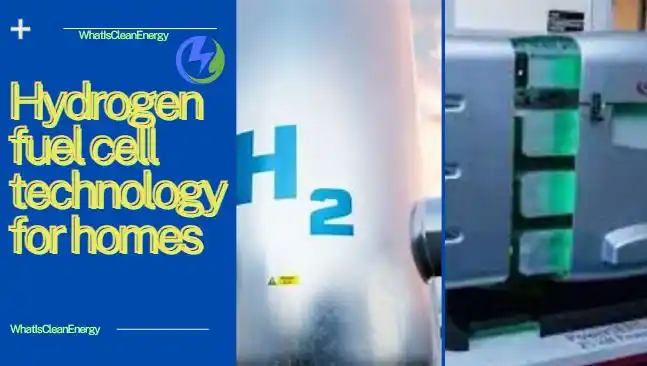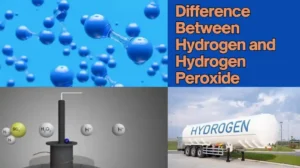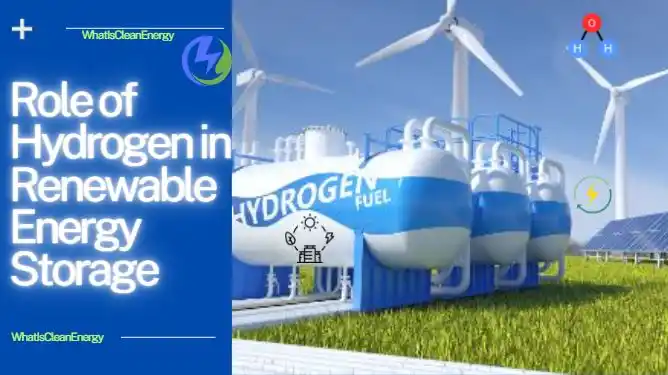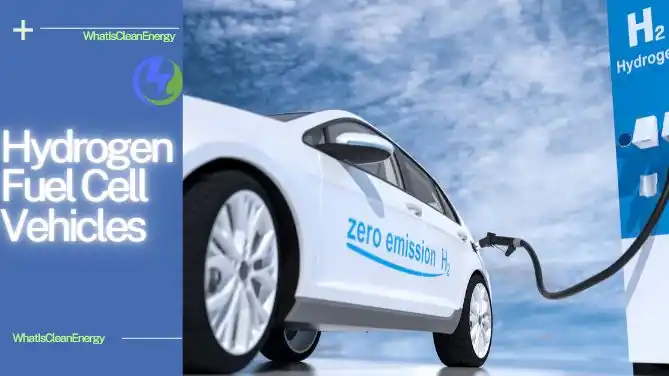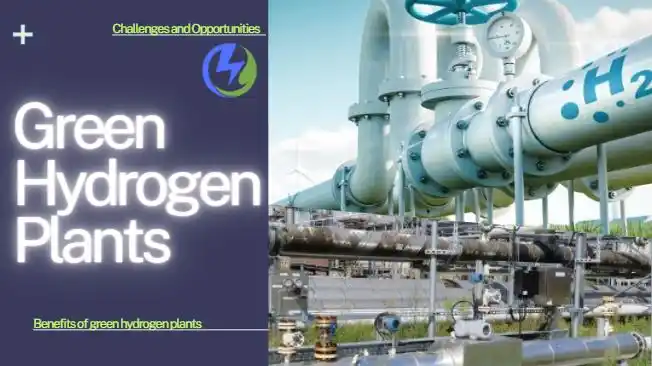Hydrogen fuel cells are devices that use hydrogen and oxygen to produce electricity, water, and heat. They are a clean and efficient alternative to fossil fuels and can be used to power homes, vehicles, and industries. In this article, we will explain how hydrogen fuel cells work, and what are their benefits and challenges. We also look into how Hydrogen fuel cell techncan be used for residential applications.
How do hydrogen fuel cells work?
A hydrogen fuel cell consists of three main components: a proton exchange membrane, an anode, and a cathode. The membrane separates the anode and the cathode, permitting only positively charged hydrogen ions (protons) to pass through. A catalyst, typically platinum, also coats the anode and the cathode to accelerate the chemical reactions.
The fuel cell works by splitting hydrogen molecules into protons and electrons at the anode. The electrons flow through an external circuit, creating an electric current. The protons move through the membrane to the cathode, where they combine with oxygen from the air to form water and heat. The overall reaction is:
2H2 + O2 -> 2H2O + heat + electricity
A single fuel cell can produce a small amount of voltage, typically around 0.7 volts. To produce increased power, you stack multiple fuel cells together in a fuel cell stack. Hydrogen and oxygen can be sourced from various providers, including natural gas, biogas, electrolysis, or renewable energy.
What are the benefits and challenges of hydrogen fuel cells?
Benefits of Hydrogen fuel cell technology for homes
Hydrogen fuel cells have several advantages over conventional power sources, such as:
- They are environmentally friendly, as they do not emit any harmful pollutants or greenhouse gases, except for water vapor.
- Hydrogen fuel cells are efficient, as they can convert up to 60% of the chemical energy in hydrogen into electricity, compared to 20-30% for fossil fuel power plants.
- They are reliable, as they do not have any moving parts that can wear out or break down.
- These systems are modular, allowing them to be scaled up or down to suit various power requirements and applications.
Challenges of Hydrogen fuel cell technology for homes
However, hydrogen fuel cells also face some challenges, such as:
- They are expensive, as they require high-cost materials, such as platinum, and complex manufacturing processes.
- The availability and quality of hydrogen, which is not widely distributed or produced cleanly and affordably, determine their dependency.
- Hydrogen fuel cells are sensitive to contamination, as impurities in the hydrogen or oxygen can damage the catalyst or the membrane.
- They are bulky and heavy, as they require additional components, such as hydrogen storage tanks, fuel processors, and cooling systems.
Can Home Fuel Cells Replace Existing Energy Systems Like Solar Panels and Furnaces?
Yes, home fuel cells can indeed replace traditional energy systems like solar panels and furnaces. These innovative electrochemical cells can provide all the electricity and heat a household needs, making them a comprehensive alternative to solar panels, oil, and propane furnaces.
Key Benefits:
- Comprehensive Energy Solution:
- Home fuel cells generate both electricity and heat, covering the full spectrum of residential energy needs.
- Consistent Power Supply:
- Unlike solar panels, which depend on sunlight, fuel cells can operate continuously, regardless of weather conditions or time of day.
- Environmentally Friendly:
- By converting chemical energy directly into electrical energy with minimal emissions, fuel cells offer a greener alternative to traditional oil and propane systems.
- Off-the-Grid Capability:
- Fuel cells can enable homes to be completely independent of the traditional power grid, providing a reliable energy source even in remote locations or during power outages.
Points to Consider:
- Initial Investment:
- While fuel cells can be more expensive upfront compared to solar panels or furnaces, the long-term savings and environmental benefits can be substantial.
- Maintenance:
- Fuel cells require regular maintenance to ensure optimal performance, similar to traditional energy systems.
- Availability:
- As technology advances, fuel cells are becoming more accessible, but availability and installation expertise can vary by region.
Home fuel cells are a viable and eco-friendly replacement for existing energy systems like solar panels and furnaces. They offer comprehensive energy solutions, reliable power supply, and the potential for complete off-grid living, making them an attractive option for forward-thinking homeowners.
What are the potential challenges of storing hydrogen as a liquid or solid in a home setting?
When considering hydrogen storage for home use, two main methods—liquid hydrogen and solid metal hydrides—present unique challenges that must be considered for effective and safe implementation.
Liquid Hydrogen Storage Challenges
- Extreme Cooling Requirements:
- Storing hydrogen as a liquid necessitates maintaining it at an incredibly low temperature of -253°C. This requires advanced cryogenic equipment capable of sustaining such extreme cold.
- Energy Consumption:
- The cooling system itself consumes a considerable amount of energy to achieve and maintain these temperatures, increasing both operational costs and energy inefficiency over time.
- Insulated Tank Necessity:
- Specialized insulated tanks are used to store liquid hydrogen, which can be costly and complex to install and maintain.
- Safety Risks:
- The extreme cold can cause materials to become brittle and fail, posing potential safety hazards. Additionally, any compromise in insulation could lead to rapid evaporation and loss of hydrogen.
Solid Metal Hydride Storage Challenges
- Weight and Bulk:
- Metal hydrides are often heavy, which makes storage containers cumbersome. Managing and positioning these hefty storage units within a home setting could be impractical.
- Replacement and Maintenance:
- Over time, metal hydride storage mediums degrade and need to be replaced. This not only adds to the long-term maintenance efforts but also the recurring cost for homeowners.
- Cost Factor:
- The complex metal alloys used to create hydrides are expensive. Initial installation can require a significant investment, making it less accessible for the average household.
- Storage Space:
- Although metal hydrides can store hydrogen in densely packed units, the necessary containment systems often require more space compared to simpler high-pressure gas tanks.
Recommendations for Home Fuel Cells
Given these challenges, it’s generally recommended that homes using hydrogen fuel cells opt for storing hydrogen as compressed gas. High-pressure gas cylinders are less energy-intensive, more cost-effective, and relatively easier to maintain compared to their liquid or solid counterparts. This approach strikes a practical balance between efficiency, cost, and safety—key considerations for any homeowner looking to harness the power of hydrogen.
How can hydrogen fuel cells be used for homes?
Hydrogen fuel cells can provide homes with a resilient source of backup power and reduce their dependency on the electrical grid, all while significantly reducing their carbon footprint.
How Can Hydrogen Be Stored in Your House?
Storing hydrogen at home involves several methods, each with its own benefits and requirements. Whether you choose gas, liquid, or solid form, understanding these options will help in making an informed decision.
Compressed Hydrogen Gas
One of the most common ways to store hydrogen is as a compressed gas. This involves using high-pressure tanks that range from 350 to 700 bar (5,000 to 10,000 psi). These tanks are designed to securely hold the gas and are relatively straightforward to implement in a home setting. For most residential applications, compressed hydrogen gas is recommended due to its effectiveness and ease of use.
Liquid Hydrogen
Another option is storing hydrogen as a liquid. This requires cooling the gas to -253°C and keeping it at this temperature in insulated cryogenic tanks. While this method allows for storing larger quantities in smaller spaces, it comes with significant challenges.
Metal Hydrides
Metal hydrides offer a fascinating alternative for hydrogen storage. These metal alloys absorb hydrogen gas, chemically binding it within the material. This allows for large amounts of hydrogen to be stored in compact spaces.
For storing hydrogen in a home fuel cell system, compressed hydrogen gas stands out as the most practical option. It avoids the energy and cost inefficiencies of liquid hydrogen, and the weight and expense of metal hydrides. However, it’s important to ensure proper safety measures are in place due to the high-pressure nature of the storage tanks.
Some examples of hydrogen fuel cell systems for homes are:
- ENE-FARM: This is a household fuel cell system developed by Panasonic and launched in Japan in 2009. It uses hydrogen extracted from natural gas to produce electricity and hot water for homes. It can achieve an overall efficiency of 95%, and reduce CO2 emissions by 37% compared to conventional power sources1.
- BlueGEN: This is a micro fuel cell system developed by SOLIDpower and launched in Europe in 2016. It uses natural gas or biogas to produce electricity and heat for homes and small businesses. It can achieve an electrical efficiency of 60%, and reduce CO2 emissions by 50% compared to conventional power sources2.
- PureCell: This is a stationary fuel cell system developed by Doosan Fuel Cell and launched in the US in 2014. It uses hydrogen or natural gas to produce electricity and heat for homes, commercial buildings, and industrial facilities. It can achieve an electrical efficiency of 47%, and reduce CO2 emissions by 40% compared to conventional power sources3.
Expert tips for using hydrogen fuel cells for homes
If you’re considering the use of hydrogen fuel cells for your home, here are some expert tips to assist you in making an informed decision:
- Consider your power needs and budget: Hydrogen fuel cells can provide different amounts of power, ranging from a few kilowatts to hundreds of kilowatts. The cost of the system will depend on the size, type, and installation of the fuel cell. You should also factor in the maintenance and operation costs. Consider potential savings from lower energy bills and tax incentives.
- Choose a suitable location and design: Hydrogen fuel cells need a safe and accessible location. Preferably outdoors or in a well-ventilated area. They also need to be connected to a hydrogen or natural gas supply, an electrical grid, and a water drainage system. You should consult with professional installers. You must follow the local codes and regulations for installing and operating a fuel cell system.
- Compare different options and models: Hydrogen fuel cells vary in their performance, features, and specifications. You should compare different options and models from reputable manufacturers and suppliers. It’s essential to go through the reviews and ratings left by other users. You should also look for certifications and warranties that guarantee the quality and safety of the fuel cell system.
Conclusion
Hydrogen fuel cells are a promising technology that can provide clean and efficient power for homes. They have many benefits. It reduces greenhouse gas emissions, increases energy security, and enhances power reliability. However, they also have some challenges, such as high costs. It limited hydrogen availability and technical issues. Therefore, it is important to do your research and consult with experts before investing in a hydrogen fuel cell system for your home.
References and Learn more:
1. panasonic.com 2. insights.globalspec.com 3. fuelcellsworks.com 4. energy.gov 5. aris-re.com

